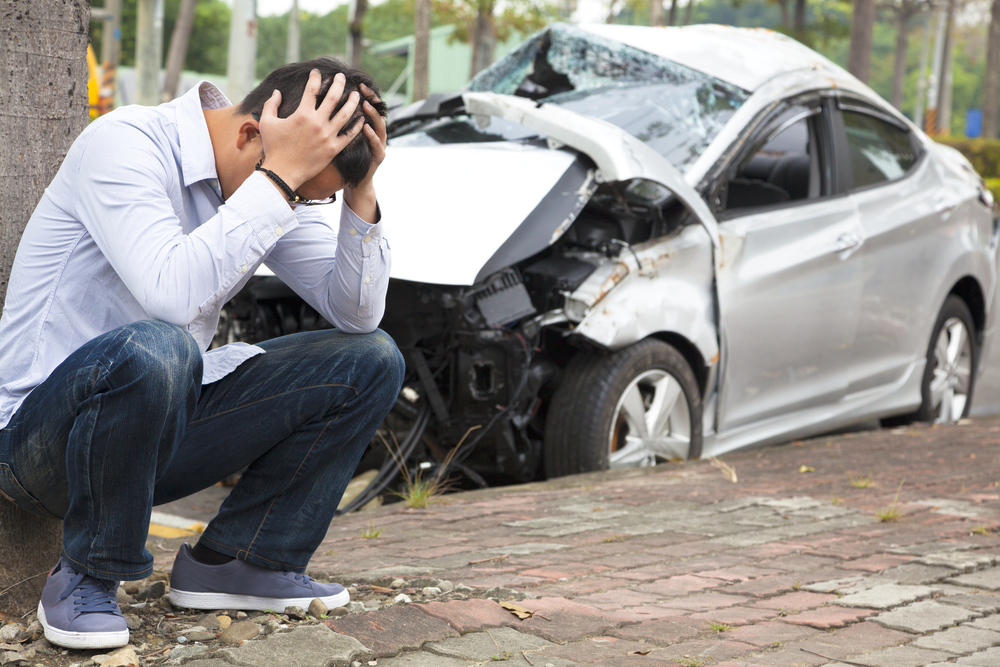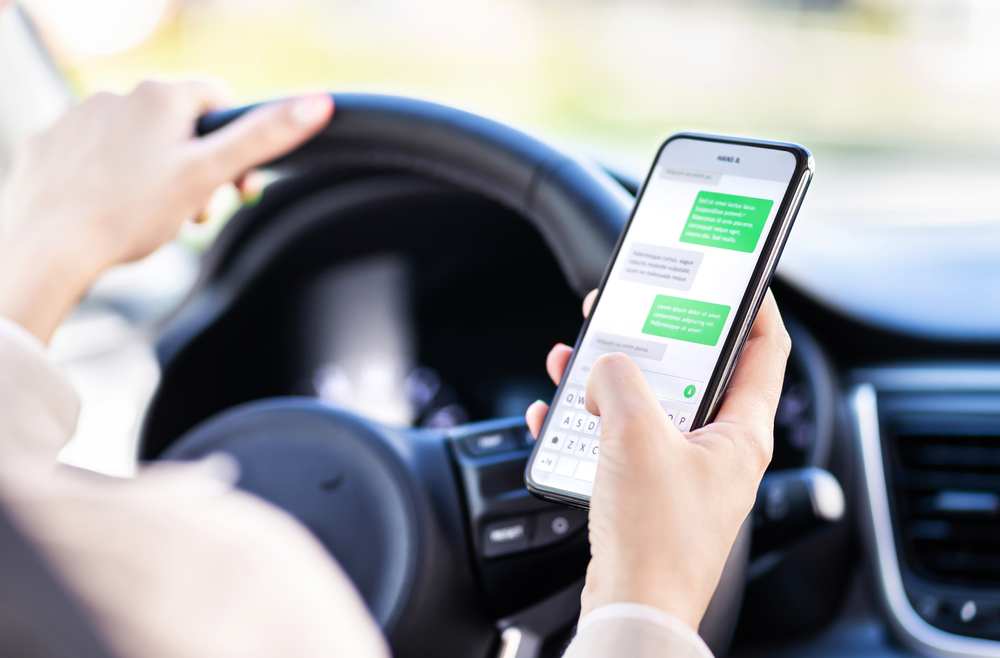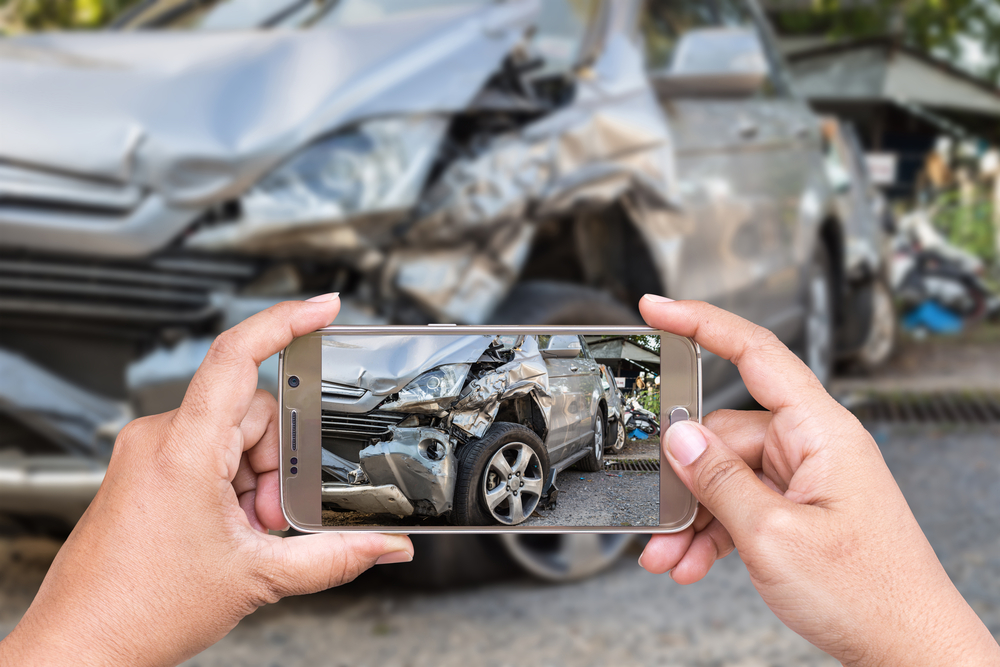
Washington Car Accident Claim Guide: What to Do After a Crash
Your Step-by-Step Roadmap for Protecting Your Rights and Getting Compensation
Washington Car Accident Claim Guide
A car accident in Washington State can leave you dealing with injuries, property damage, insurance complications, and legal questions. This comprehensive guide provides Washington residents with specific information about state laws, reporting requirements, insurance coverage, and crucial steps to protect your rights after a collision.
Immediate Steps After a Car Accident in Washington
Check for Injuries: Call 911 immediately if anyone is injured. Under Washington law (RCW 46.52.020), you must provide reasonable assistance to injured persons, which includes arranging transportation to medical facilities if necessary.
Move to Safety: If possible and safe to do so, move vehicles to the shoulder or off the roadway to prevent additional collisions. Washington law encourages this to maintain traffic flow and safety.
Exchange Information: Obtain names, contact information, driver's license numbers, license plate numbers, and insurance details from all involved drivers. Washington law requires this exchange regardless of fault.
Document the Scene: Use your smartphone to take photos of:
- All vehicles involved and their damage
- The accident scene, including road conditions and traffic signs
- Visible injuries
- Weather and lighting conditions
- Skid marks or debris on the road
Gather Witness Information: If there are witnesses, collect their names and contact information. Independent witnesses can provide crucial testimony if liability is disputed.
File a Police Report: Washington law (RCW 46.52.030) requires reporting accidents that result in:
- Injury or death to any person
- Property damage exceeding $1,000
If law enforcement responds to the scene, they will file a report. If not, you must submit a collision report to the Washington State Department of Licensing within 4 days of the accident.
Washington's Fault-Based Insurance System
Washington operates under a "fault" or "at-fault" insurance system. This means the driver who caused the accident is responsible for the resulting damages. After an accident in Washington, you have several options:
- File a claim with your own insurance company (who may seek reimbursement from the at-fault driver's insurer)
- File a third-party claim directly with the at-fault driver's insurance company
- File a personal injury lawsuit against the at-fault driver
Washington's Pure Comparative Negligence Rule
Washington follows a "pure comparative negligence" rule (RCW 4.22.005). This means:
- You can recover damages even if you were partially at fault for the accident
- Your compensation will be reduced by your percentage of fault
- Unlike some states, there is no threshold of fault that bars recovery
Example: If you're found 30% responsible for an accident and your damages total $100,000, you can still recover $70,000 (the total minus your 30% of fault).
Minimum Insurance Requirements in Washington
All Washington drivers must maintain the following minimum liability insurance coverage (effective 2025):
- $25,000 for bodily injury or death per person
- $50,000 for bodily injury or death per accident (total for all persons)
- $10,000 for property damage
While these are the minimums required by law, many Washington drivers choose higher coverage limits for better protection. These minimums often prove insufficient in serious accidents, particularly when medical expenses are involved.
Optional Insurance Coverages in Washington
Washington law requires insurance companies to offer these optional coverages, which you can accept or reject in writing:
Personal Injury Protection (PIP): While not mandatory in Washington, insurance companies must offer PIP coverage, which provides:
- Up to $10,000 for medical expenses (higher limits available)
- Up to $200 weekly for income loss (up to $10,000 total)
- Up to $5,000 for funeral expenses
- Benefits for services the injured person would normally perform (e.g., household tasks)
Uninsured/Underinsured Motorist (UM/UIM) Coverage: Also not mandatory but must be offered. This protects you if:
- You're hit by a driver with no insurance
- You're hit by a driver with insufficient coverage
- You're the victim of a hit-and-run
What to Do in the Days Following Your Washington Accident
Seek Medical Attention
Even if you feel fine initially, some injuries may not manifest symptoms immediately. Washington's three-year statute of limitations gives you time, but documenting injuries promptly creates a stronger connection between the accident and your injuries.
Notify Your Insurance Company
Report the accident to your insurer promptly. Most Washington insurance policies require notification within 24-48 hours. Delays can result in claim denials. Provide facts but avoid:
- Admitting fault
- Speculating about the cause
- Minimizing your injuries
- Giving recorded statements without consulting an attorney
Obtain the Police Report
In Washington, you can request your collision report:
- Online through the Washington State Patrol's Collision Records Request System
- In person at a WSP district office
- By mail using a collision report request form
This report often contains crucial information about the officer's assessment of the accident.
Document Your Recovery
Keep detailed records of:
- All medical treatments and appointments
- Prescription medications
- Physical therapy sessions
- Days missed from work
- How your injuries affect daily activities
- Pain levels and limitations
Follow Your Doctor's Orders
Adhere strictly to your prescribed treatment plan. Insurance companies may use gaps in treatment or failure to follow medical advice to reduce your compensation.
Washington-Specific Laws That May Impact Your Claim
Statute of Limitations
In Washington State, you have three years from the date of the accident to file a lawsuit for:
- Personal injury claims (RCW 4.16.080)
- Property damage claims
Missing this deadline typically means losing your right to pursue compensation through the courts.
Mandatory Insurance Law
All Washington drivers must carry proof of insurance. Driving without insurance can result in:
- A minimum fine of $550
- Suspension of your license
- SR-22 filing requirements for three years
- Being personally liable for damages if you cause an accident
Reporting Requirements
Washington law requires drivers to file an accident report within 4 days if:
- The accident resulted in injury or death
- Property damage exceeds $1,000
- Police did not respond to the scene
Reports can be filed online through the Washington State Department of Licensing website or by obtaining a collision report form from the Washington State Patrol.
How to Maximize Your Washington Car Accident Claim
Document Everything
Washington courts rely heavily on documentation. Maintain organized records of:
- Medical bills and reports
- Repair estimates and bills
- Correspondence with insurance companies
- Photos of injuries and property damage
- Witness statements
- Lost wage verification from your employer
Understand Insurance Tactics
Washington's Insurance Fair Conduct Act (IFCA) provides protections against unreasonable claim denials or delays. Be aware that:
- Insurance adjusters may offer quick, low settlements
- They may request unnecessary information to delay claims
- They may misrepresent policy coverages
Don't Give Recorded Statements
Insurance adjusters often request recorded statements. In Washington, you are not legally required to provide such statements to the other party's insurance company. Consult with an attorney before giving any recorded statement.
Get Multiple Repair Estimates
Washington law allows you to choose where your vehicle is repaired. You are not required to use the repair shop recommended by the insurance company. Get at least three independent estimates for comparison.
Consider All Available Damages
Washington law allows recovery for:
- Past and future medical expenses
- Lost wages and loss of earning capacity
- Pain and suffering
- Loss of enjoyment of life
- Property damage
- Out-of-pocket expenses
- In severe cases, loss of consortium (impact on marital relationship)
Know When to Consult a Washington Car Accident Attorney
Consider consulting a Washington attorney if:
- There are serious injuries or fatalities
- Liability is disputed
- Multiple parties are involved
- You're being blamed for part of the accident
- The insurance company is delaying or denying your claim
- You're uncomfortable negotiating with insurance adjusters
Common Questions About Washington Car Accident Claims
How does Washington's comparative negligence law work?
Washington follows pure comparative negligence (RCW 4.22.005), allowing recovery even if you're partially at fault. Your compensation is reduced by your percentage of fault. For example, if you're 20% at fault for an accident with $10,000 in damages, you can recover $8,000.
Is Washington a no-fault insurance state?
No, Washington is an "at-fault" state. The driver responsible for causing the accident is liable for resulting damages. This differs from no-fault states where each driver's insurance covers their own losses regardless of fault.
What if the other driver is uninsured in Washington?
If you have uninsured motorist coverage (which insurance companies must offer in Washington), you can file a claim with your own insurance. Without this coverage, you may need to file a lawsuit against the uninsured driver directly or explore other avenues of compensation.
Is PIP coverage required in Washington?
No, Personal Injury Protection (PIP) is optional in Washington, but insurance companies must offer it. If you decline, you must do so in writing. PIP provides immediate coverage for medical expenses regardless of fault.
How long will my car accident claim take in Washington?
Simple claims may settle in weeks or months, while complex cases involving serious injuries may take a year or longer, especially if a lawsuit is filed. Washington's court backlog can also affect timelines.
Can I still recover if I wasn't wearing a seatbelt?
Yes, but your compensation may be reduced. Washington's "seatbelt defense" allows evidence of non-use to potentially reduce damages, though it cannot be used to establish fault for the accident itself.
What should I do immediately after a car accident in Washington?
Check for injuries and call 911 if needed, move vehicles to safety if possible, exchange information with all drivers involved (including insurance details and contact information), document the scene with photos, gather witness information, and file a police report for accidents with injuries or property damage exceeding $1,000.
How does Washington's fault-based insurance system work?
Washington is an 'at-fault' state where the driver responsible for the accident is liable for damages. You can file a claim with your own insurer, the at-fault driver's insurer, or pursue a lawsuit. Washington follows pure comparative negligence, allowing you to recover damages even if you're partially at fault, with your compensation reduced by your percentage of fault.
What is the statute of limitations for car accident claims in Washington?
Washington State has a three-year statute of limitations for both personal injury and property damage claims resulting from car accidents. This means you must file a lawsuit within three years of the date of the accident, or you typically lose your right to pursue compensation through the courts.
Is Personal Injury Protection (PIP) insurance required in Washington?
No, PIP coverage is not mandatory in Washington State, but insurance companies are required by law to offer it. If you decline PIP coverage, you must do so in writing. Standard PIP in Washington covers up to $10,000 for medical expenses, up to $200 weekly for income loss (maximum $10,000), and up to $5,000 for funeral expenses.
What are Washington's minimum car insurance requirements?
Washington drivers must carry minimum liability insurance of $25,000 for bodily injury or death per person, $50,000 for bodily injury or death per accident (total for all injured persons), and $10,000 for property damage. These minimums are often insufficient for serious accidents, so many drivers choose higher coverage limits.
Do I need to report my car accident to authorities in Washington?
Yes, Washington law requires reporting accidents that result in injury, death, or property damage exceeding $1,000. If police respond to the scene, they will file a report. If not, you must submit a collision report to the Washington State Department of Licensing within 4 days of the accident.
Browse Other Articles for "Car Accidents" in Washington:
Start Your FREE Consultation
Complete the form for a Free Consultation. No upfront fees, swift action, and we're only paid when we succeed for you.
Ask Us If You Qualify
We’re here to help you take on your fight—whether it’s a car accident, a dangerous drug, or a workplace injury gone wrong. One call starts it all, and we’re with you every step, no upfront cost required.
- Free Case Review
- No Fees Until Victory
- Millions Recovered
- Personal Strategy
- California Coverage
- Relentless Case Pursuit


